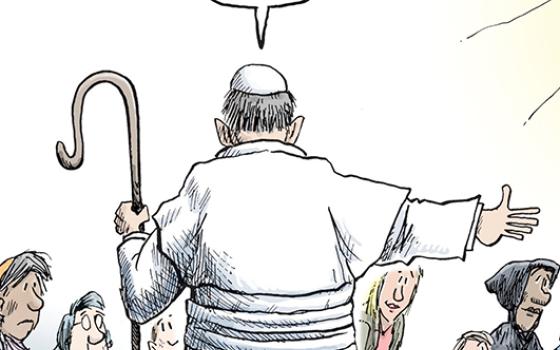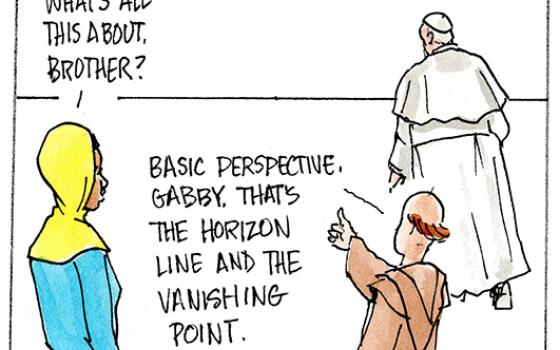The fall of the Qaddafi regime may be welcome new to President Obama, removing a potential stumbling block from a path already strewn with plenty of difficult stones to overcome. But, it is doubtful that the happy news from Tripoli will provide him with much of a bounce. Why is this?
One of the most jarring intellectual exercises you can undertake is to read or listen to John F. Kennedy’s Inaugural Address. Almost the entire speech was dedicated to the subject of foreign policy. Back then, of course, foreign policy was more or less a subject that garnered bipartisan agreement. Statesmen understood the need to end political debates “at the water’s edge” and present a united front to the world. That had been the case since the great Republican Sen. Arthur Vandenberg saw the need to work with President Harry S. Truman in crafting the post-war policies that were essentially followed by every American president until the collapse of communism. There actually was a broad consensus within the foreign policy establishment of both political parties.
The consensus evaporated with the collapse of the threat of communism. It had been weakened by Vietnam, of course, and there were divergences about how to negotiate with the Soviet Union, but, for example, the strain of isolationism that was so strong in American history, from George Washington’s Farewell Address through Charles Lindbergh, was dormant until the 1990s. As well, the rise of Islamicist terrorism presented a new kind of threat, an asymmetrical threat, with which foreign policy experts are still grapping. Bill Clinton’s failure to stop the genocide in Rwanda and George W. Bush’s decision to start a war with Iraq further exposed the lack of any foreign policy consensus. Foreign policy today is just one more reason to bang on the other party.
If President Obama’s poll number only enjoyed a short-lived jump after the killing of Osama bin Laden, I would not expect to see much of a jump in his numbers for the fall of Qaddafi. The political landscape in which presidential leadership is exhibited has changed thoroughly from the day when Kennedy said America would “bear any burden” and “pay any price” to advance the cause of freedom. We have learned since then that there are burdens we will not bear and that even our best efforts sometimes misfire. And, while unemployment hovers around 9 percent, Americans do not evidence much in the way of patience with complicated foreign matters.
History will be kinder to the Obama administration – and more focused on events in Tripoli – than the electorate. This was a very important six months. As much as some right-wing commentators disparaged the idea of “leading from behind,” and although the President never said those words himself, those words did describe something of what his policy aimed to achieve. For years, Americans have complained that the rest of the world, and especially the Europeans, were not doing their fair share to keep the world safe. They were ineffectual in stopping the ethnic cleansing in Bosnia, until the U.S. stepped in. Our military budget was larger than the military budgets of the rest of the world by a significant margin. We Americans were tired of the burden of global leadership even while we recognized there were times when our values or our interests would demand that we act.
The Obama administration effectively worked with our NATO allies in Libya. However much U.S. technological know-how and material was necessary to the mission in Libya, it was the Europeans who were taking the lead. Actually, better to say, it was the Europeans who helped the Libyan patriots take the lead. The difference between the images in Tripoli and those in Baghdad nine years ago was significant: The only Americans on the television last night were reporters. The U.S. military was not in evidence. Qaddafi could not delay his defeat by painting the attack on Tripoli as a foreign invasion. No one likes to live in chains, but most people prefer the chains of one of their own to the chains of a foreign occupier. By resisting the calls of some for more forceful U.S. military involvement, President Obama helped guarantee that the Libyans themselves own the process of national rebuilding. We can help. But, we are not morally obligated as we were in Iraq where we owned it because we broke it.
There will still be times when only direct U.S. military action will meet the exigencies of the world. We certainly could not have entrusted the raid to get bin Laden to the Pakistanis. The U.S. military presence in South Korea will remain important so long as North Korea is ruled by a madman. Our commitment to the security of the state of Israel cannot be handed off to anyone else. But, Obama deserves high marks for working with NATO in Libya, by recognizing the long-term benefits of a less pronounced U.S. presence, and of withstanding the barbs and attacks from the rightwing – and the leftwing – bleachers that he was not doing enough or he was doing too much.




